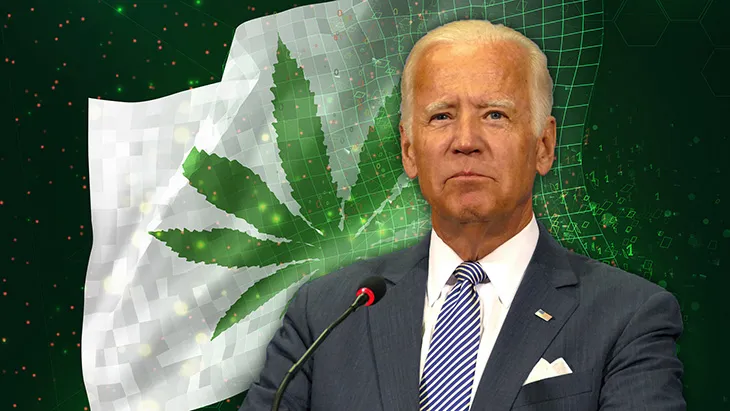Photo via Ryan Lackey
The federal government has a budget issue. The last comprehensive spending plan, signed two years ago by then-President Barack Obama, expired in September of this year, but a two-month continuing resolution, followed by another two-week extension, were passed to keep things afloat until December 22nd. Now, it’s crunch-time on Capitol Hill: In between legislative battles over infrastructure, Obamacare subsidies, and the fate of America’s immigrant ‘Dreamers,’ the standing budget amendment popularly known as Rohrabacher-Farr — which protects the country’s state-legal medical marijuana patients, producers, and caregivers from federal interference — is on the chopping block, with U.S. Attorney General and noted cannabis critic Jeff Sessions possibly chomping at the bit to get past the enforcement muzzle.
First introduced in 2001, but tabled until it ultimately passed on the eighth try in 2014, the Rohrabacher-Farr amendment (now titled Rohrabacher-Blumenauer since Rep. Samuel Farr’s retirement earlier this year) prevents the Department of Justice from spending federal funds to prosecute cannabis-related activities if they are permitted under state-specific medical marijuana laws.
Since then, the amendment has kept the DEA out of medical dispensaries across the country. and has been re-inserted into every subsequent federal budget, including in 2016, when House Republicans Paul Ryan and Pete Sessions (no relation to Jeff) shut down the entire amendment process as a way to shield themselves from conservative backlash over gay rights and cannabis protections passing. Barely hindered, the Rohrabacher-Farr amendment was approved by the Senate, and eventually made it into the federal budget anyway.
But with Donald Trump now in the White House, drug warrior Sessions heading the DOJ, and a Republican majority in both the House and Senate, those same medical marijuana protections are no longer a no-brainer at federal spending debates, raising concern for not only the growing cannabis industry, but the millions of patients who rely on THC and CBD to help combat their cancer, epilepsy, opioid addiction, and countless other ailments — a prospect that has cannabis-friendly lawmakers gearing up to fight back.
“I will push back on any federal effort to interfere with our laws and not share information if it’s not related to a criminal investigation under our own law or ordered by a court,” said Rep. Jared Polis, a Colorado Democrat and fierce advocate for marijuana legalization, said in a recent Reddit “Ask Me Anything” thread. “So as long as we don’t cooperate it would be hard, almost impossible, for there to be a major federal-only enforcement action.”
If the government does shutdown over spending disagreements on December 22nd, or if legislators pass a federal budget without the medical marijuana protection amendment, as the GOP threatened to do in September, Jeff Sessions could push the DEA to disrupt medical cannabis business from California to Massachusetts, with nothing but local politicians standing in his way.
In the almost four years since Rohrabacher-Farr first passed into law, the amendment has not only stopped our current anti-cannabis Attorney General, but also reversed at least one case of prosecutorial misconduct, freeing three of the so-called Kettle Falls Five, a group of Washington State residents arrested for growing cannabis in 2012. Arrested for federal cannabis crimes, but adamant that their cultivation was legal under Washington’s medical program, an appeal this year overturned the still lingering consequences of the five-year-old arrest, with the Ninth Circuit Court ruling that Rohrabacher-Farr’s 2014 passing should have prevented any federal spending used to prosecute and punish the Kettle Falls Five.
Without deliberate action from Congress, those protections could be gone before the week is up.
But while the medical marijuana industry waits with bated breath for their future to unfold under the federal budget, America’s continually expanding recreational cannabis industry is only protected by the Obama-era Cole Memo — a suggested, but not legally binding, moratorium on federal interference in state-approved recreational cannabis. Because the Cole Memo can be rescinded by Sessions at will, the country’s ever-expanding adult-use cannabis community has been waiting for the other foot to drop since Sessions’ confirmation. With no such federal crackdown materializing in the first year of Sessions’ DOJ reign, it’s also possible that Rohrabacher-Farr could rescinded in the federal budget, but without any DOJ action in canna-legal states thereafter.
“With respect to the Cole Memo, even if Rohrabacher-Farr was not renewed, we still have that small save, assuming that all stayed in place,” Denver cannabis attorney Garrett Graff told MERRY JANE last month. “Despite the rhetoric from Attorney General Sessions, it’s an interesting anecdote that, as of right now, there are not necessarily any protections afforded to recreational marijuana businesses. Sessions could withdraw the Cole Memo protections and immediately come into Colorado to enforce federal law against adult-use businesses. And he’s not done so as of yet.”
Even in the face of Sessions’ vicious bark but dormant bite, Capitol Hill’s cannabis champions aren’t ready to give up legislative protections and trust the prohibitionist top cop. With cannabis collecting bipartisan support in huge swaths of the country, Rep. Earl Blumenauer, the amendment’s new co-sponsor, is confident that Sessions’ efforts will be thwarted before the budget is completed.
“It’s more trouble than it should be, but I think it will ultimately be protected,” Blumenauer told Politico. “And what’s going on right now is going to accelerate further reform…The public is behind us. Both chambers of Congress are behind us, and if they choose to make it a partisan issue, it won’t go well for them.”











